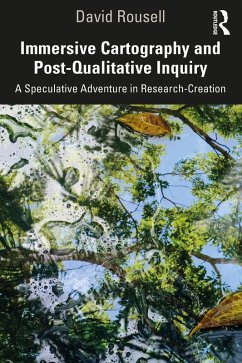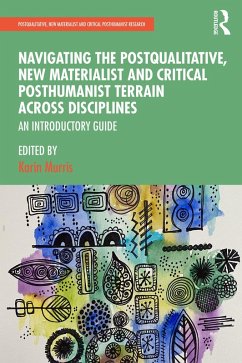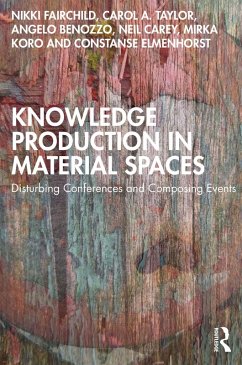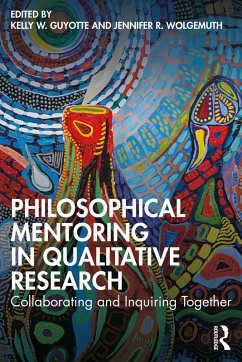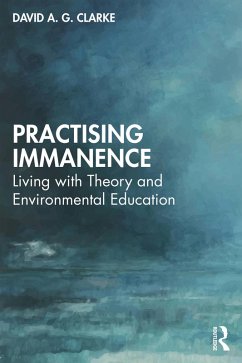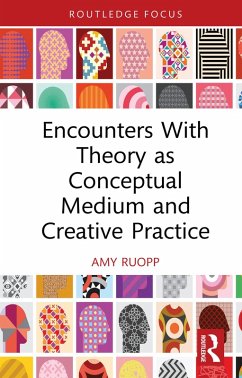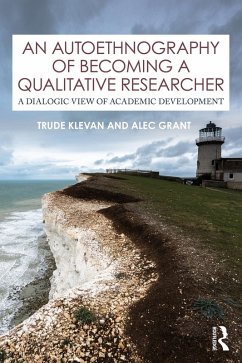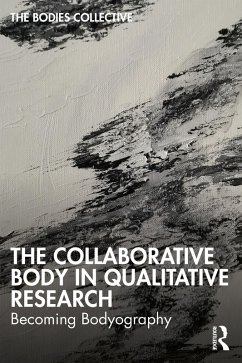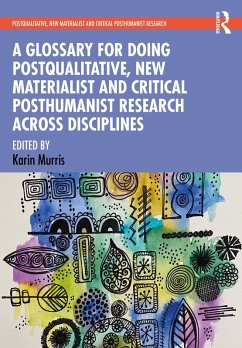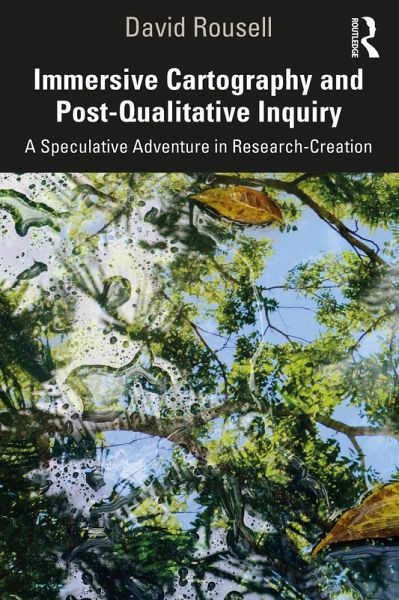
Immersive Cartography and Post-Qualitative Inquiry (eBook, ePUB)
A Speculative Adventure in Research-Creation
Versandkostenfrei!
Sofort per Download lieferbar
39,95 €
inkl. MwSt.
Weitere Ausgaben:

PAYBACK Punkte
20 °P sammeln!
Immersive Cartography and Post-Qualitative Inquiry introduces immersive cartography as a transdisciplinary approach to social inquiry in an age of climate change and technological transformation.Drawing together innovative theories and practices from the environmental arts, process philosophy, education studies, and posthumanism, the book frames immersive cartography as a speculative adventure that gradually transformed the physical and conceptual architectures of a university environment. The philosophical works of Alfred North Whitehead, Gilles Deleuze, and Felix Guattari are touchstones thr...
Immersive Cartography and Post-Qualitative Inquiry introduces immersive cartography as a transdisciplinary approach to social inquiry in an age of climate change and technological transformation.
Drawing together innovative theories and practices from the environmental arts, process philosophy, education studies, and posthumanism, the book frames immersive cartography as a speculative adventure that gradually transformed the physical and conceptual architectures of a university environment. The philosophical works of Alfred North Whitehead, Gilles Deleuze, and Felix Guattari are touchstones throughout the book, seeding the development of concepts that re-imagine the university through a more-than-human ecology of experience. Illustrated by detailed examples from Rousell's artistic interventions and pedagogical experiments in university learning environments, the book offers new conceptual and practical tools for navigating the ontological turn across the social sciences, arts, and humanities.
Rousell's wide-ranging and detailed analysis of pedagogical encounters resituates learning as an affective and environmentally distributed process, proposing a "trans-qualitative" ethics and aesthetics of inquiry that is orientated toward processual relations and events. As a foothold for a new generation of scholarship in the social sciences, this book opens new directions for research across the fields of post-qualitative inquiry, art and aesthetics, critical university studies, affect theory, and the posthumanities.
Drawing together innovative theories and practices from the environmental arts, process philosophy, education studies, and posthumanism, the book frames immersive cartography as a speculative adventure that gradually transformed the physical and conceptual architectures of a university environment. The philosophical works of Alfred North Whitehead, Gilles Deleuze, and Felix Guattari are touchstones throughout the book, seeding the development of concepts that re-imagine the university through a more-than-human ecology of experience. Illustrated by detailed examples from Rousell's artistic interventions and pedagogical experiments in university learning environments, the book offers new conceptual and practical tools for navigating the ontological turn across the social sciences, arts, and humanities.
Rousell's wide-ranging and detailed analysis of pedagogical encounters resituates learning as an affective and environmentally distributed process, proposing a "trans-qualitative" ethics and aesthetics of inquiry that is orientated toward processual relations and events. As a foothold for a new generation of scholarship in the social sciences, this book opens new directions for research across the fields of post-qualitative inquiry, art and aesthetics, critical university studies, affect theory, and the posthumanities.
Dieser Download kann aus rechtlichen Gründen nur mit Rechnungsadresse in A, B, BG, CY, CZ, D, DK, EW, E, FIN, F, GR, HR, H, IRL, I, LT, L, LR, M, NL, PL, P, R, S, SLO, SK ausgeliefert werden.




